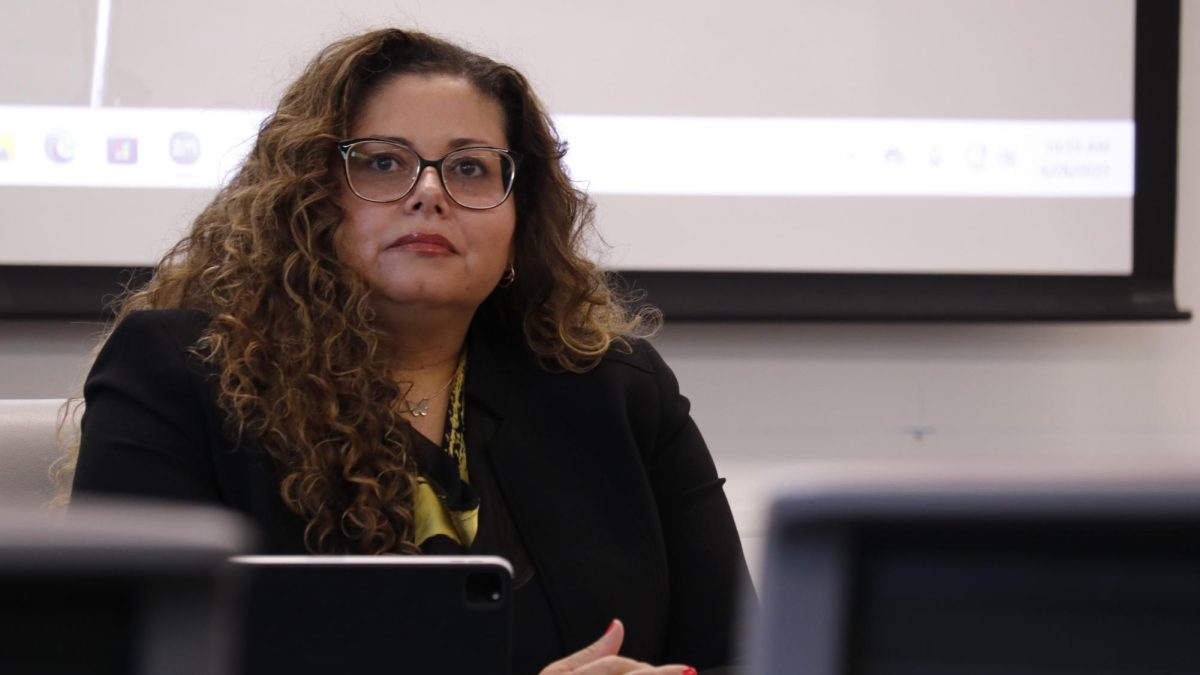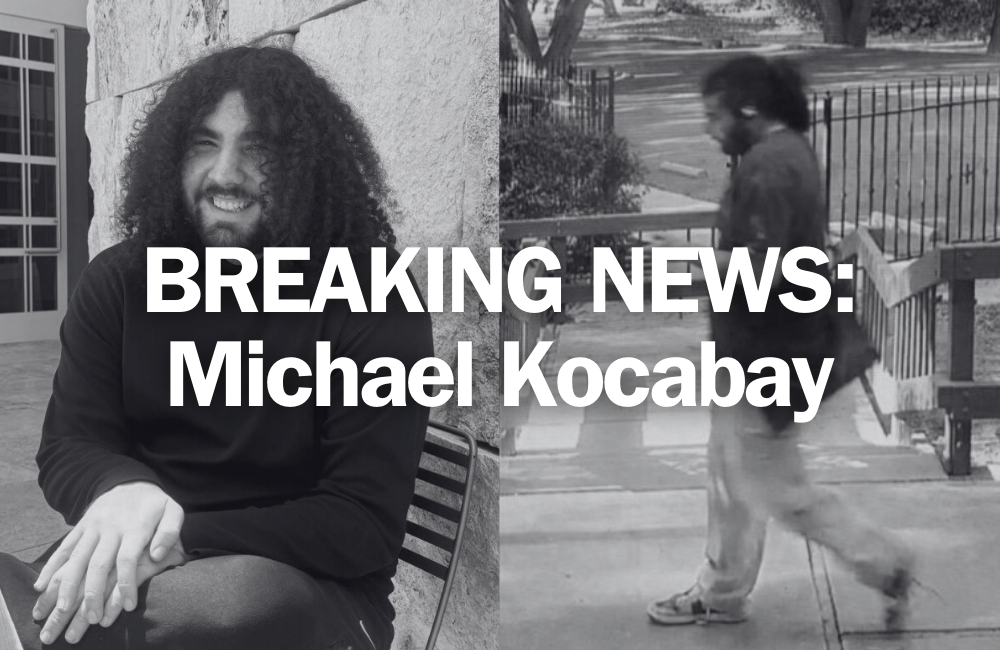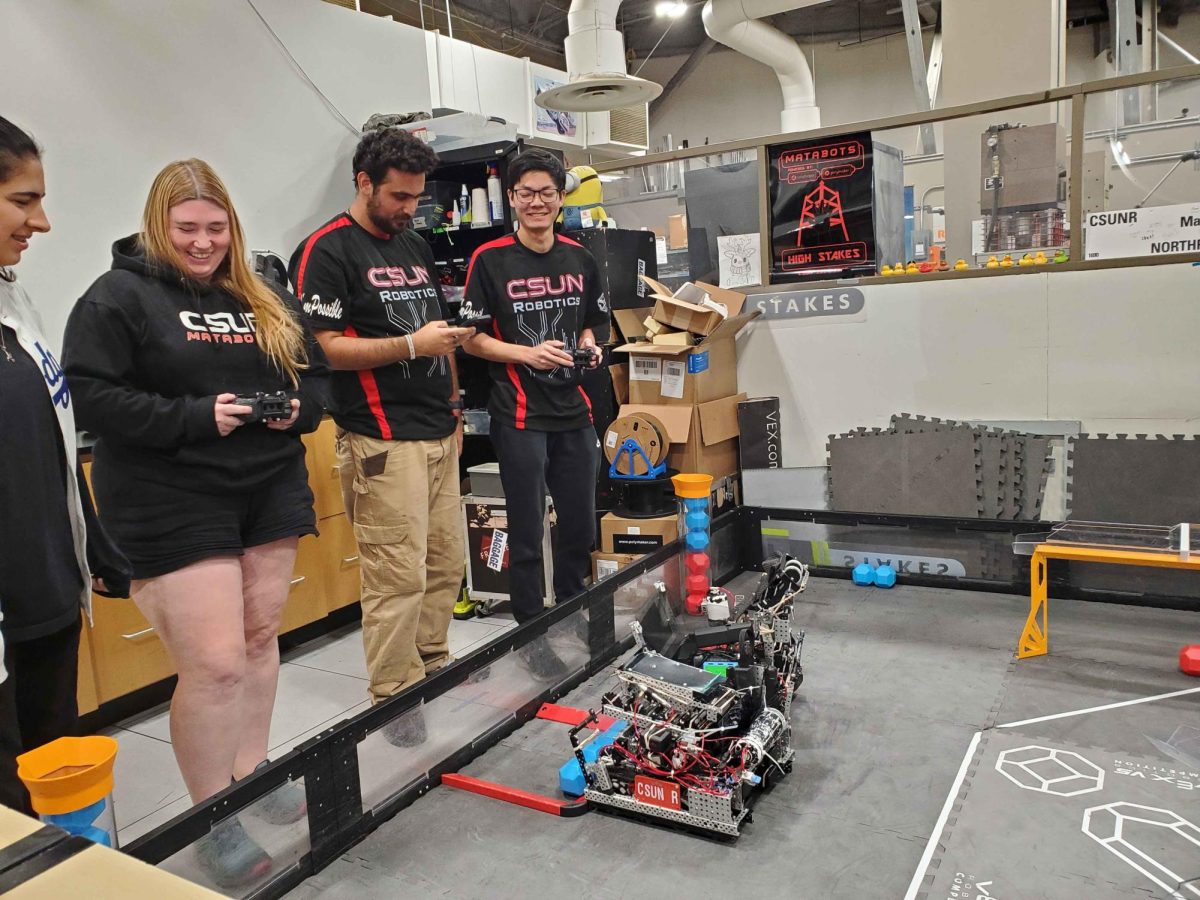Students were assigned to specific families, and role played as the members on their name tags and info packets provided by the group.
“Some people might know about the issue, but nothing beats the actual experience,” said Dominique Aguet, student volunteer with Unified We Serve.
Although the families’ names were created, their day to day living conditions in poverty were recreated to be as life-like as possible.
Stations simulated police stations with a jail, a pawn shop, quick cash centers, banks, childcare centers, public schools, temp agencies and social services.
Slightly less than the projected turn out of 100 students participated in the event, with about 80 volunteers working and playing along with the simulation.
Students were told to conduct their daily routines of their given roles within four 15-minute intervals, in hopes of reaching their shared goals of securing a home, feeding their families, and paying bills, loans and daily expenses.
The experience was relative considering no one can not fully simulate poverty, said Justin Weiss, activities coordinator for the Matador Involvement Center.
He said 15-minute intervals were chosen because that time period can go by slowly just sitting around, but with a goal in mind the time moves quickly, which is normal for a family.
“We want students to feel the pinch, and what it’s like during crunch time,” Weiss said.
Students were asked to take the task seriously, being reminded of the 32.9 million families in U.S. who live in poverty, and participants seemed to obey that request.
“It’s good to see the persistence of students when they come upon unfortunate circumstances,” said Latanza Price, Unified We Serve student assistant. “It happens everyday and it’s a great feeling to bring that into light.”
Some students role playing led their simulated families to be evicted from their homes for not paying rent or unemployment.
Nicoyia Hurt’s character was sent to jail after ditching school at 16-years-old and pregnant.
“It’s definitely a humbling experience,” she said.
Other students felt the sting of the real world when their character’s experienced consistent push back.
“Everytime things started to look up, it took a turn for the worst,” said Dustin Merritt, whose character was killed. “Something bad always happened.”
Others said the experience made them rethink their own lifestyle.
“I hope my life isn’t like this, it certainly makes me more thankful of my parents,” said Kristina Coleman, whose character died during the fourth round.
Students reflected on the nights’ simulation and compared their experience to that of actual families.
“A lot of the situations were similar to each other, transportation was always an issue, there was lots of tension everywhere and it was always packed,” said Meritt
But Weiss reminded participants of the reason why his organization called them to this event, not to feel pity but to start thinking.
“The question isn’t how sad it is, but how can we as Unified We Serve do something about it?” Weiss said.
Unified We Serve will give members an opportunity to meet impoverished families in the San Fernando Valley on October 29, and mentioned upcoming food drives to help those in need.
“Education and action are social justices,” Weiss said. “Both are powerful on their own, but together their even more effective.”




